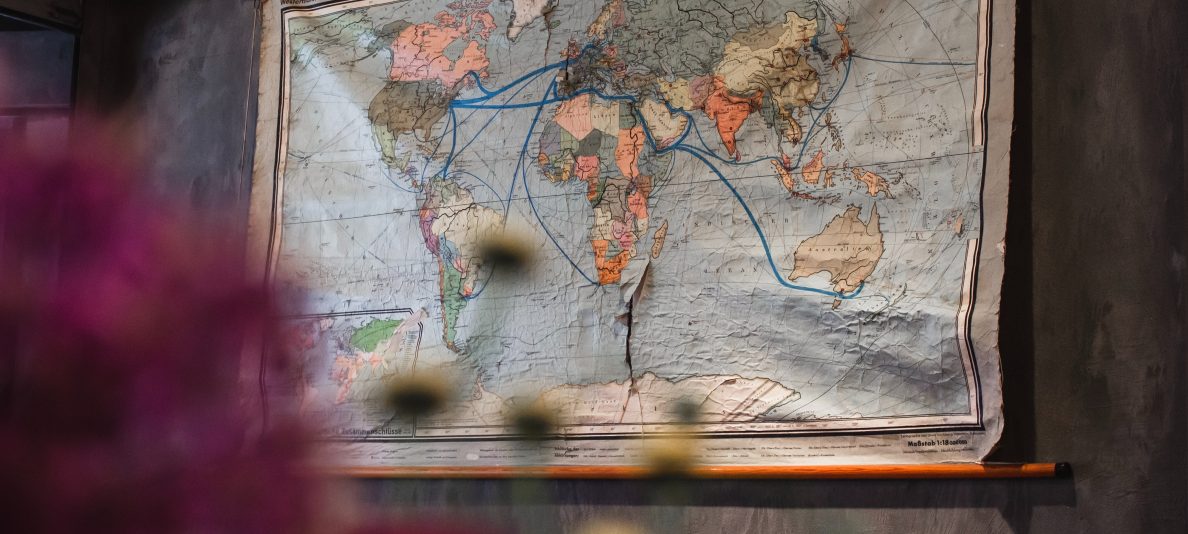Traveling to far-away places and coping with new surroundings brings about lots of adjustments—adjustments in thought patterns and in ways of doing even mundane tasks. Few know this as dramatically as those who have lived aboard the International Space Station. But you don’t need to venture into outer space to be able to relate to their stories of exploration and adaptation.
National Geographic’s One Strange Rock looks at our planet through the eyes of eight astronauts. The final episode of this, the first season, is titled “Home.” (Watch it here.)
In it, host Will Smith asks,
Where is home? Is it where you were born, where you were raised, or where you are now? Is it somewhere you lived, somewhere you left, somewhere that shaped you? If you really want to know you need to leave them all behind.
One of those who’s left it all behind is Peggy Whitson, who, over three missions, spent a total of 665 days in space—a record for NASA astronauts and more than any other woman in the world. She’s come a long way from where she she lived as a child, a farm near Beaconsfield, Iowa, current population “elevenish.”
Whitson says,
As I’ve grown up and gone to college and gone to graduate school, home has expanded from Iowa to Texas to the United States, and since being in space, home is actually planet earth.
Astronaut Chris Hadfield:
One of the biggest changes I noticed within myself as the result of flying in space was that the difference between us and them disappeared. Somehow going around the world in 92 minutes, not just once, but over and over and over again, turned the entire world into one shared place. I think it’s a perspective that seeps into astronauts. I think it’s a perspective that’s kind of good for everybody.
Astronaut Leland Melvin adds,
I truly believe that if more people could have the opportunity to see the planet from space, looking at the rich colors, looking at the fact that there are no borders separating us, we could see that we are truly all connected as human beings
Back to Smith, on reentry:
Ever been on a trip and seen something new, something incredibly beautiful, or something that changed the way you think about things? Now imagine that trip was to space. You’ve seen something that only a very few people have ever seen.
Astronauts need to tell someone, anyone, everyone. Soon they’re ready to go back down, but it’s actually bittersweet. They’re going back to the place that made them, but leaving the place that shaped them.
About her return, Whitson shares, “It was hard to leave because I knew I wouldn’t be coming back.” She starts to choke up and then blurts out, “Jeepers!” and laughs. “But I was all excited about being back home and being back on earth, having, you know, wind, and smelling the air and just being on earth.”
“But coming home isn’t easy,” says Smith. “Mother earth doesn’t exactly welcome you back with open arms.”
Repatriation from space, returning through the earth’s atmosphere, is actually the hardest part of the trip, and setting down on the solid ground of Kazakstan isn’t the softest of landings.
Whitson says, “Most people compare it to a car crash. I would compare it to maybe two car crashes.”
And then there’s the transition from weightlessness to . . . weight. “Wow, space was good,” Whitson says and adds with a smile, “Gravity sucks.”
Though he’s not part of the One Strange Rock crew, Scott Kelly has this to say about the reverse culture stress brought about by gravity:
Back to Melvin, in the National Geographic production:
When I got home from space after getting out of my suit, then to have a meal without the food floating away from you, and being able to pet your dog and talk to your parents fact to face, it made me feel so much more connected to the planet.
Another astronaut, Nicole Scott:
I couldn’t wait to feel what a breeze would be like again, you know, what the smell of grass was going to, you know, smell like again.
Hadfield:
It’s the smells of earth, the smell of home, the smells of the natural world, it’s overpowering. It’s kind of overwhelming.
Melvin again:
Just because you physically leave the surface of the earth does not mean you leave the earth, because the earth is part of you.
And Whitson:
I’m not sure whether I feel more like an earthling or a space woman. I think being a space woman’s a lot more fun.
Blast off . . . G forces . . . wonder . . . homesickness . . . rootlessness . . . reentry . . . landing . . . longing—sounds like crossing cultures.
So what is day-to-day life really like in the culture of space? Here are a few glimpses into how the ordinary becomes anything but:
There’s learning to cook without the comforts of your kitchen or a microwave . . . or plates.
What happens when the food doesn’t want to stay down?
You thought squatty potties were a challenge.
Then you have no-shower showering.
And, oh yeah, when you look out the window, there’s the view.
Don’t forget the view.
(“Home,” One Strange Rock, National Geographic, May 28, 2018)
[photo: “GPN-2000-001056,” by NASA Remix Man, used under a Creative Commons license]

